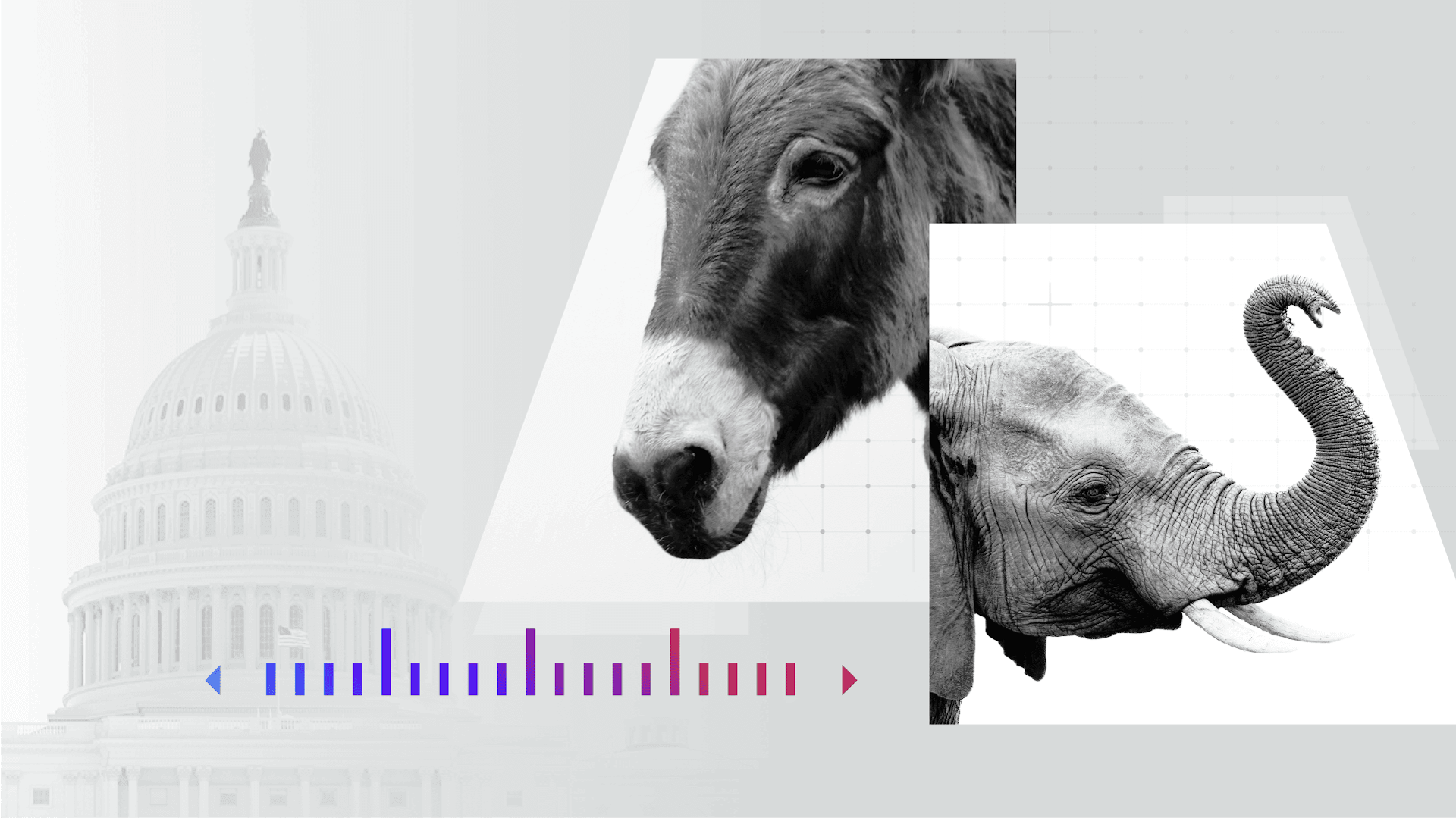How Americans Are Reacting to Charlie Kirk’s Assassination

Data Downloads
Pro+ subscribers are able to download the datasets that underpin Morning Consult Pro's reports and analysis. Contact us to get access.
Republicans and Democrats agree that America’s political rhetoric is to blame for the environment that led to the assassination of conservative influencer Charlie Kirk, a highly salient news event that’s prompted finger-pointing and concern about future political violence, echoing the aftermath of the failed attempt on President Donald Trump’s life in 2024.
According to Morning Consult’s latest survey, 2 in 3 voters (67%) have seen, read or heard “a lot” about Kirk’s killing at Utah Valley University, the largest share we’ve recorded among hundreds of news events tested in 2025.
Most Americans have heard a lot about Kirk’s assassination — and seen the video footage

Republican voters were a bit more likely than Democrats to say they’d heard a lot about the shooting (71% to 64%) and to have seen the video footage of Kirk being killed (72% to 60%).
The killing of the Turning Point USA founder, who was known for his provocative commentary and campus appearances where he would debate students in defense of his right-wing views, reignited a debate over the tenor of American political discourse.
While most Democrats and Republicans blame the state of American political rhetoric, mental health issues and social media for the circumstances that led to Kirk’s assassination, that’s generally where the bipartisan agreement ends.
Democrats and Republicans blame rhetoric — and each other — for Kirk’s death
Following Trump’s attempts to blame the press for the political environment, 62% of Republican voters said the “liberal media” is to blame, matching the share of Democrats who blame the president. Similarly, 56% of Democrats and Republicans pointed the finger at the opposite political party, with another 54% of Democratic voters on the left blaming Kirk himself.
These figures are similar to what we saw following Trump’s shooting in July 2024, when 38% of all voters blamed Trump for the attempt on his life, identical to the share who said the same of Kirk today.
Notably, voters now are slightly more likely to say social media is to blame for Kirk’s assassination than they were after the Trump attack (55% to 50%), driven by an uptick among Democratic voters.
The aftermath of Kirk’s slaying has also seen a bevy of right-wing commentators pronounce that political violence in America is exclusively a left-wing problem. Americans, however, don’t see it that way.
There’s little consensus on which side’s extremists commit more violence

The survey found that 29% of voters say violence tends to be committed more often by left-wing extremists, similar to the 27% that puts the bulk of the blame on right-wing extremists. Among partisans, Republicans are slightly more likely to blame the other side than Democrats, who are more likely to say both sides are equally responsible.
As Republicans work to spotlight a slew of callous social media posts that followed Kirk’s killing, our data suggests those anecdotes are hardly representative. Just 15% of Democratic voters said they feel happy about Kirk’s assassination, in line with the 13% of Republican voters who said the same.
How Americans are feeling about Kirk’s murder
The bulk of the electorate said the news made them worried (57%) or angry (56%), though Republicans are 30 percentage points more likely than Democrats to say they feel the latter emotion (74% to 43%).
By this metric, Kirk’s murder appears less jarring to voters than the attempt on Trump’s life last year, when 64% of voters said they were worried. However, the level of anger nearly matches our survey that followed the Trump assassination attempt, when we captured a similar partisan divide.
The bottom line
Kirk’s assassination looks to carry similar weight to the attempted Trump assassination, both in awareness and in its impact on partisans, who are retreating into their respective camps. It’s also reviving concerns about more political violence moving forward as lawmakers and activists revisit their security protocols.
Voters fear more political violence following Kirk’s shooting

More than half of voters (54%) said they were “very concerned” about future political violence, slightly higher than the 52% who said the same after Trump was shot.
Kirk’s death was undoubtedly a landmark moment for the country, but much like with the attempt on Trump’s life, it doesn’t appear to be prompting any real soul-searching for either side of the country’s political divide. That’s not lost on Americans — including 84% of Democrats and 66% of Republicans — who currently see the country as divided rather than united, something neither side appears willing to take the blame for.
If there is a notable policy shift to come out of this tragedy, it may pertain to social media. Given the entrenched partisan opposition to gun control, bipartisan blame for social media could make big tech companies relatively vulnerable given the larger ongoing debate about content moderation.
Eli Yokley is Morning Consult’s U.S. politics analyst. Eli joined Morning Consult in 2016 from Roll Call, where he reported on House and Senate campaigns after five years of covering state-level politics in the Show Me State while studying at the University of Missouri in Columbia, including contributions to The New York Times, Politico and The Daily Beast. Follow him on Twitter @eyokley. Interested in connecting with Eli to discuss his analysis or for a media engagement or speaking opportunity? Email [email protected].